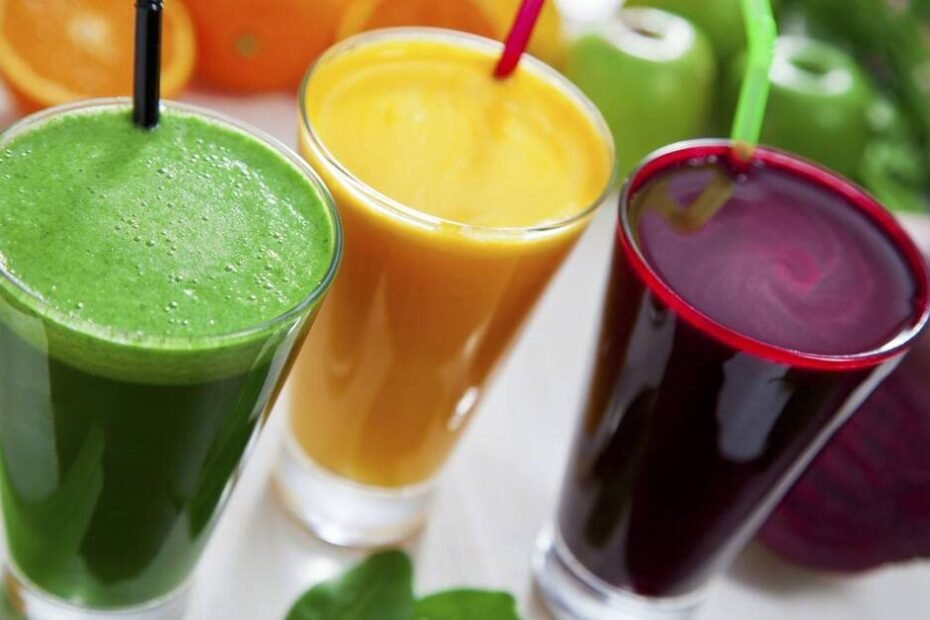Juice cleanses have gained significant popularity as a quick and trendy method for detoxifying the body. Advocates passionately claim that they can provide a wide range of health benefits, from improved digestion and increased energy levels to enhanced overall well-being. However, like many health trends, juice cleanses come with both advantages and disadvantages. In this comprehensive exploration, we’ll delve deeply into the pros and cons of juice cleanses, providing you with a nuanced understanding to make an informed decision about whether or not this detoxification method aligns with your health goals.
The Pros of Juice Cleanses
1. Nutrient Boost: Juice cleanses provide a concentrated source of essential vitamins, minerals, and antioxidants. By consuming a diverse array of fruits and vegetables in liquid form, you can significantly augment your daily nutrient intake.
2. Detoxification Support: Advocates of juice cleanses argue that these regimens aid the body’s natural detoxification processes. Specific compounds present in fruits and vegetables may assist in the removal of harmful toxins and free radicals from the body.
3. Weight Loss Potential: Some individuals turn to juice cleanses as a short-term strategy for shedding excess pounds. Due to the reduced calorie intake inherent in juice cleanses, it’s possible to experience noticeable weight loss during the cleanse period.
4. Improved Digestion: A juice cleanse offers your digestive system a respite from processing solid foods. This temporary break may help alleviate digestive issues like bloating, indigestion, and discomfort.
5. Enhanced Hydration: Juices are primarily composed of water, which can contribute significantly to your overall hydration levels. Proper hydration is undeniably vital for overall health, as it affects numerous bodily functions.
The Cons of Juice Cleanses
1. Nutrient Deficiency: Despite their rich nutrient content, juice cleanses lack certain essential elements, notably dietary fiber and protein. Extended periods of consuming only juices can lead to potential nutrient deficiencies.
2. Caloric Restriction: Juice cleanses typically provide far fewer calories compared to a regular diet. Prolonged caloric restriction can result in the breakdown of muscle tissue, potentially leading to muscle loss and a slowed metabolism.
3. Blood Sugar Fluctuations: The absence of fiber in juices can lead to rapid spikes and subsequent crashes in blood sugar levels. These fluctuations can cause mood swings, irritability, and energy instability.
4. Muscle Mass Loss: Prolonged juice cleanses can lead to the breakdown of muscle tissue as the body seeks alternative sources of energy, resulting in muscle loss.
5. Potential Side Effects: Juice cleanses can trigger side effects such as headaches, dizziness, nausea, and fatigue, especially during the initial days of the cleanse.
6. Unsustainability: The strict and often monotonous nature of juice cleanses makes them challenging to sustain over extended periods. Consequently, the long-term benefits of such regimens are debatable.
Finding Balance
In the realm of detoxification, achieving balance is paramount. While juice cleanses undoubtedly offer several potential benefits, they are by no means a universal solution. It’s crucial to take into account your individual health goals, dietary preferences, and overall well-being. Prior to embarking on a juice cleanse or any significant dietary change, it’s highly advisable to consult with a qualified healthcare professional who can provide personalized guidance based on your unique needs. For some, a short-term juice cleanse may serve as a revitalizing reset, while others may find that adopting a balanced diet rich in fruits, vegetables, and whole foods offers a more sustainable approach to detoxification. Ultimately, the decision to try a juice cleanse should be made with a comprehensive understanding of both its potential benefits and drawbacks, all while keeping a focus on long-term health and well-being.
